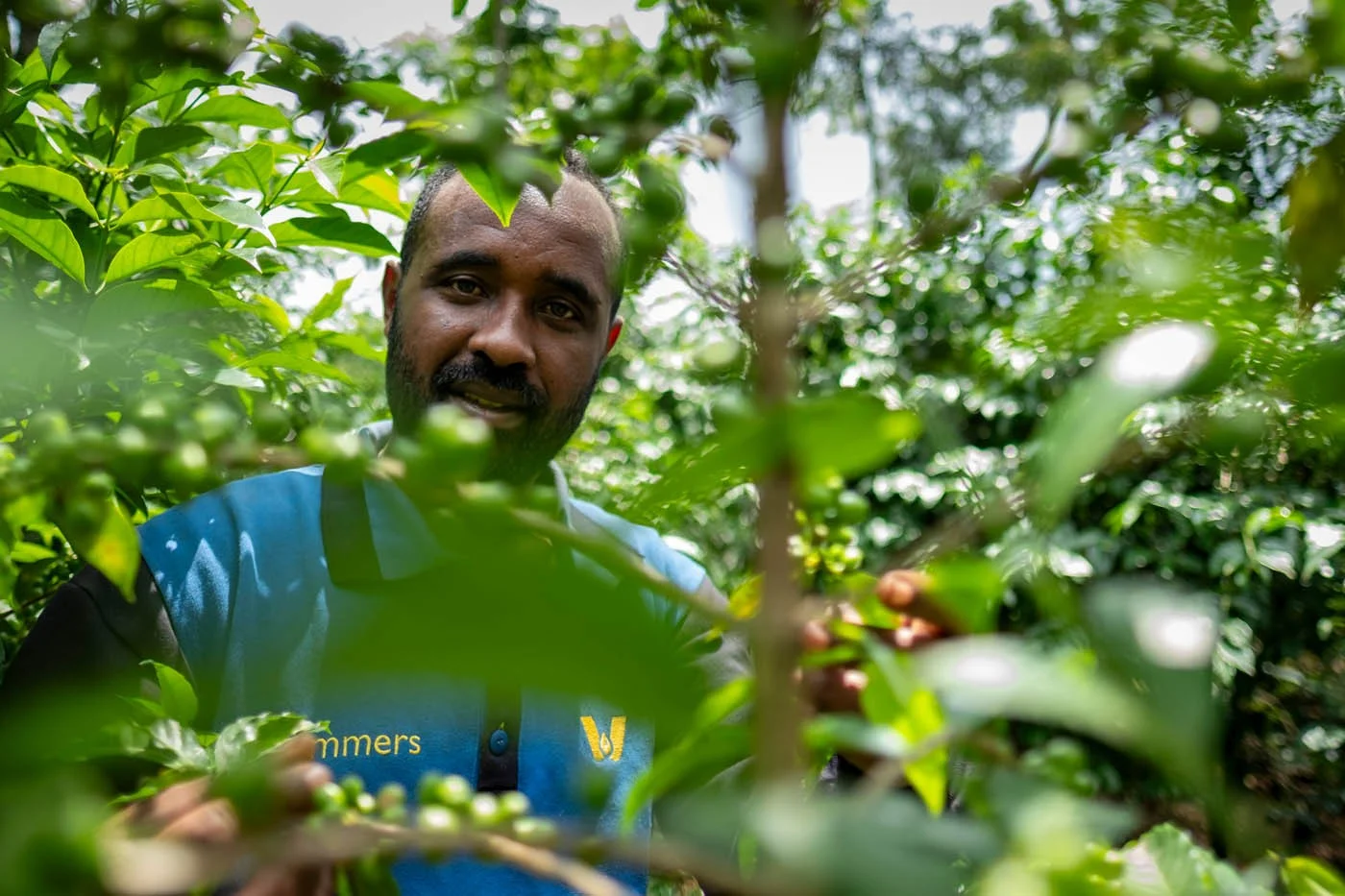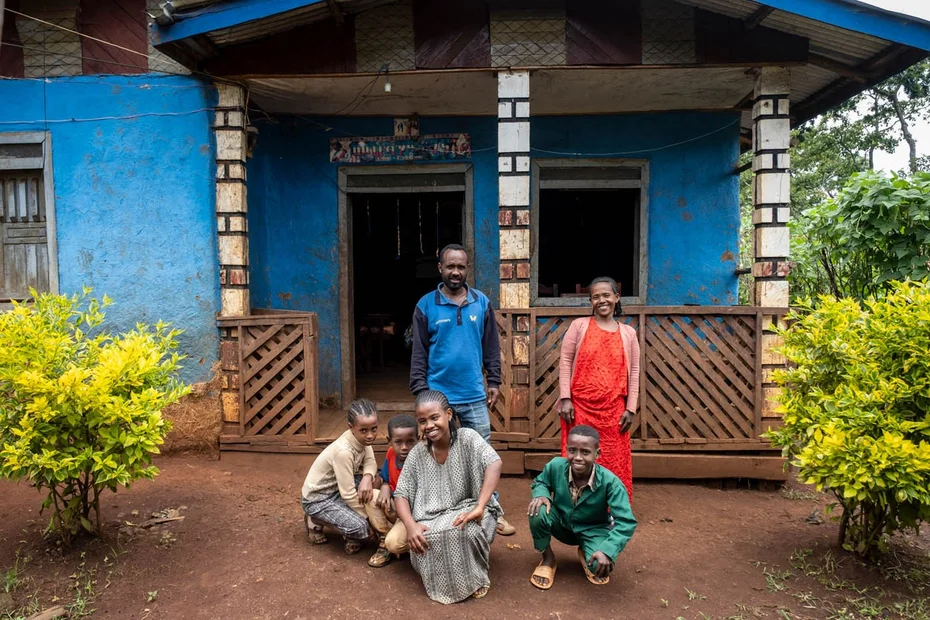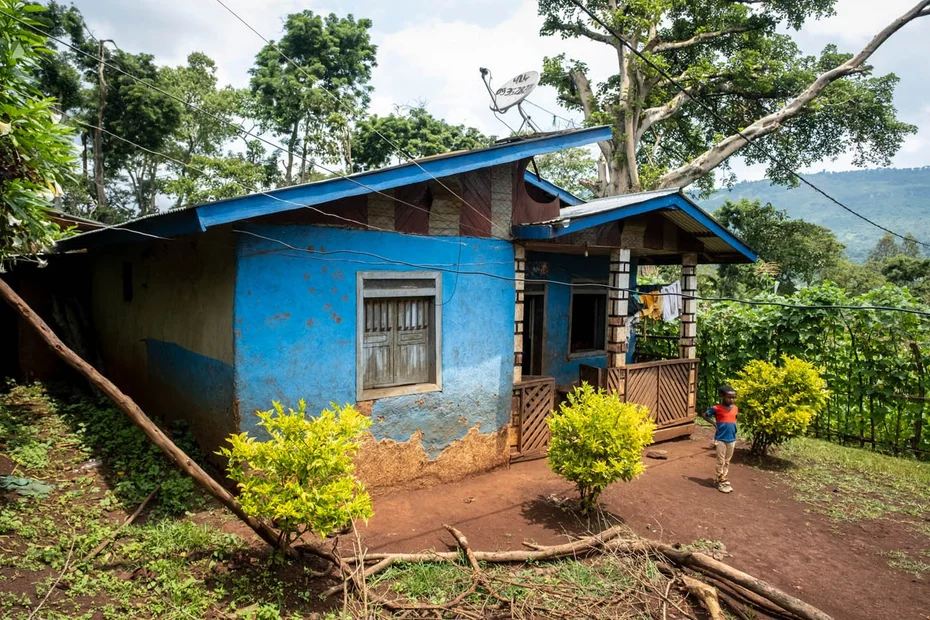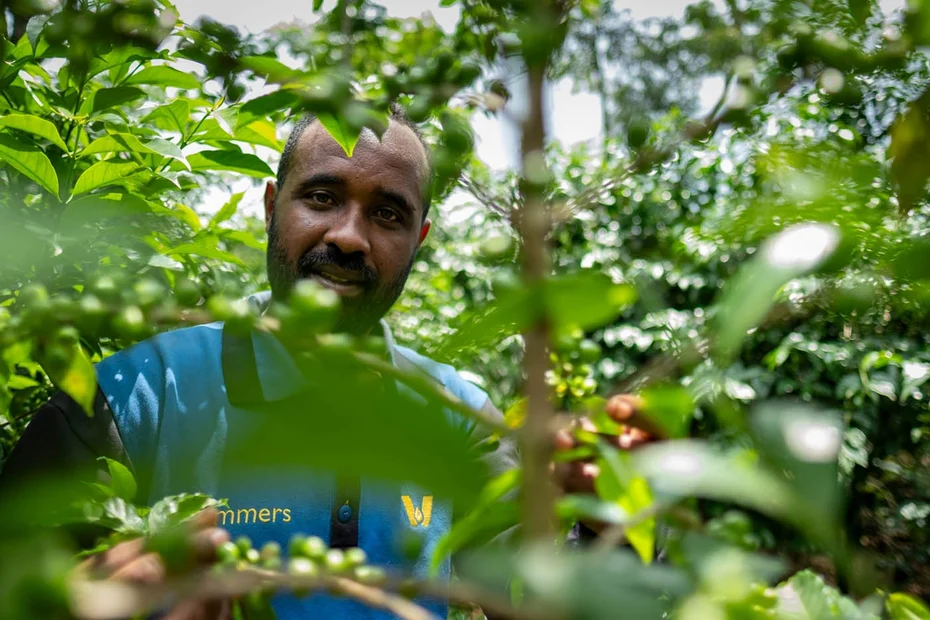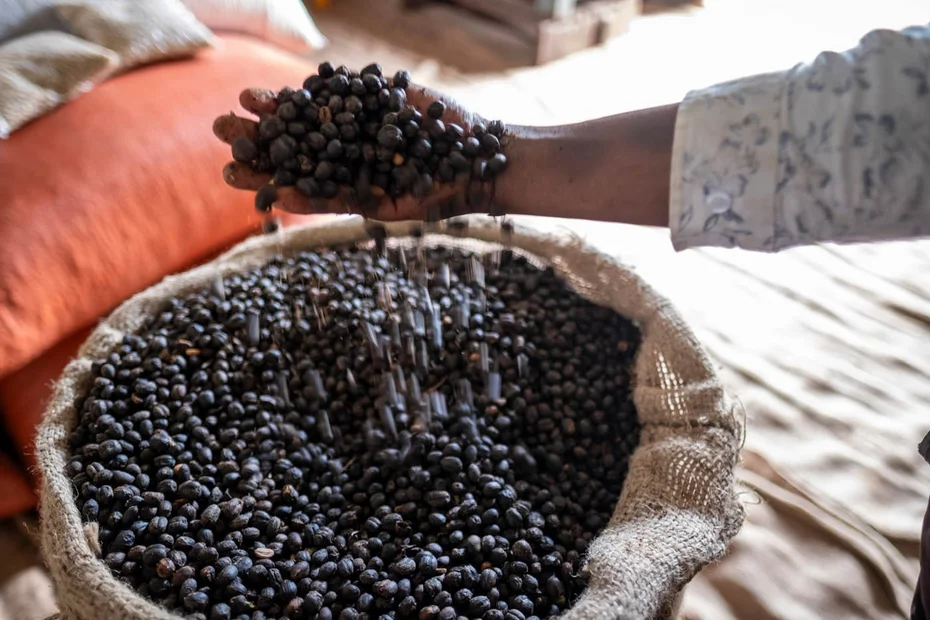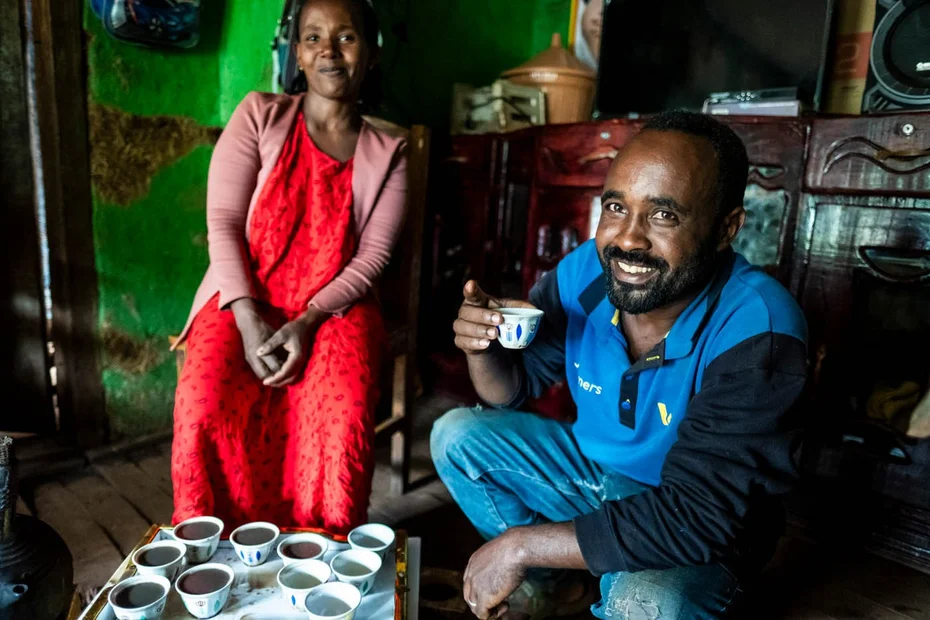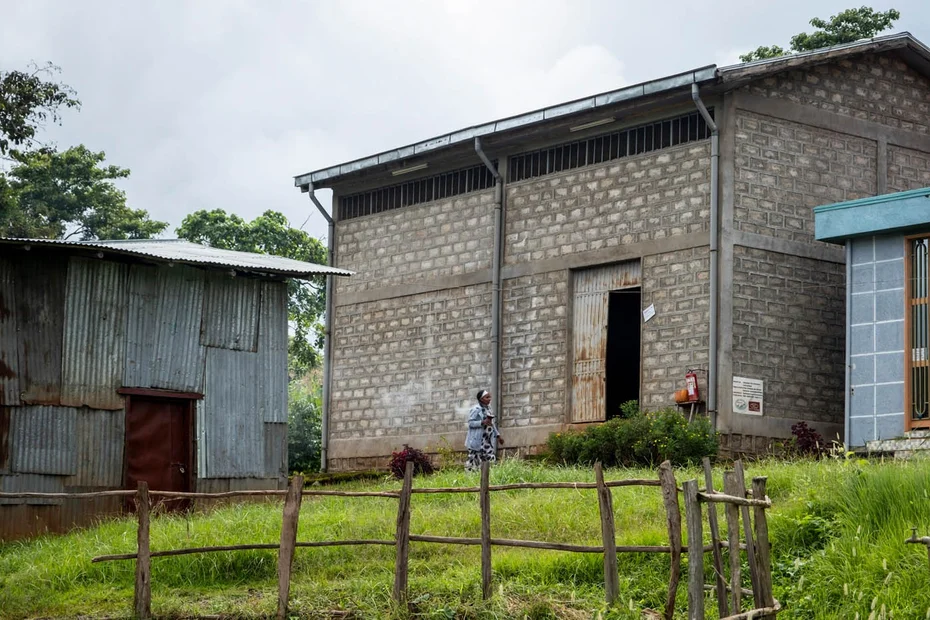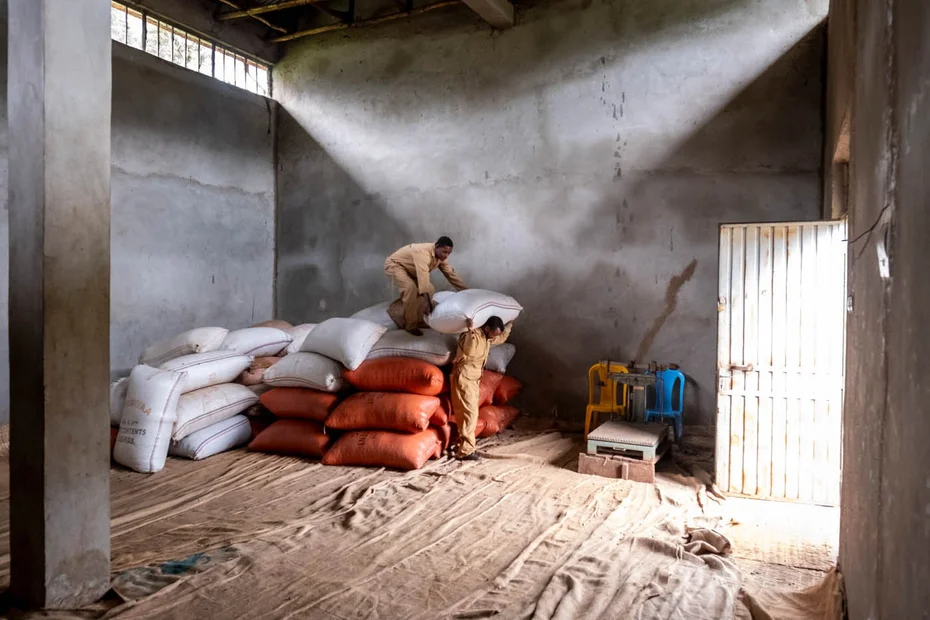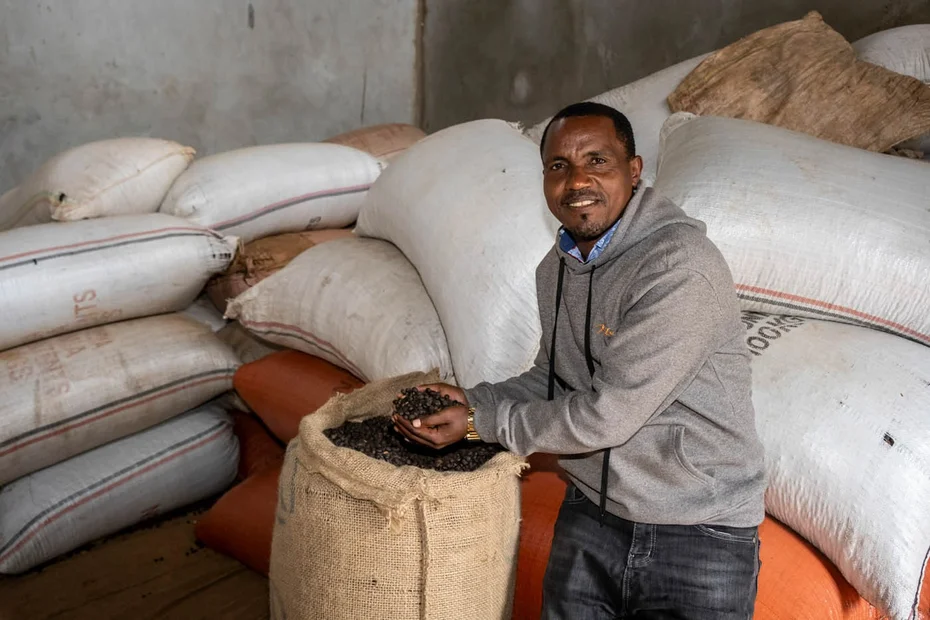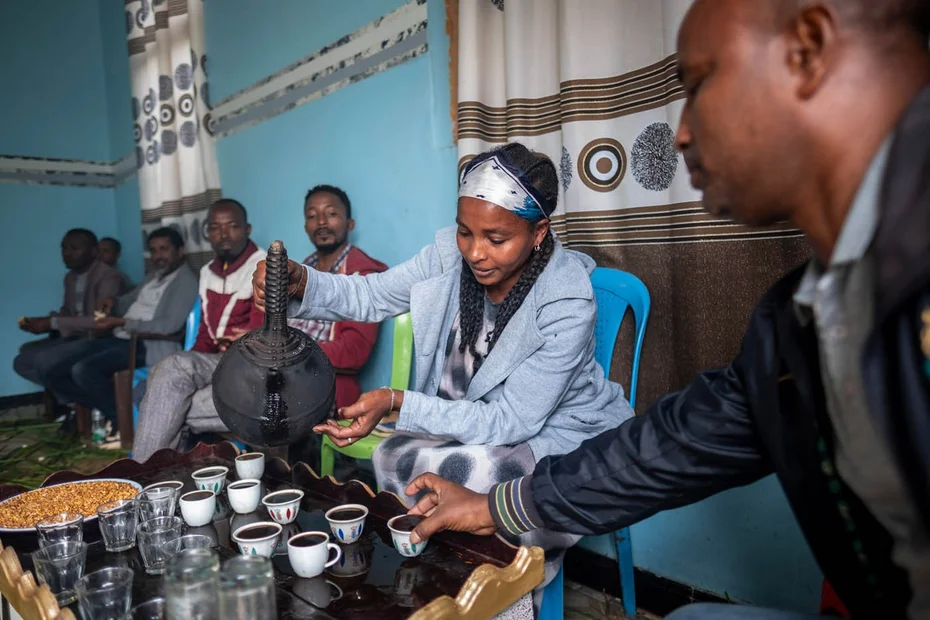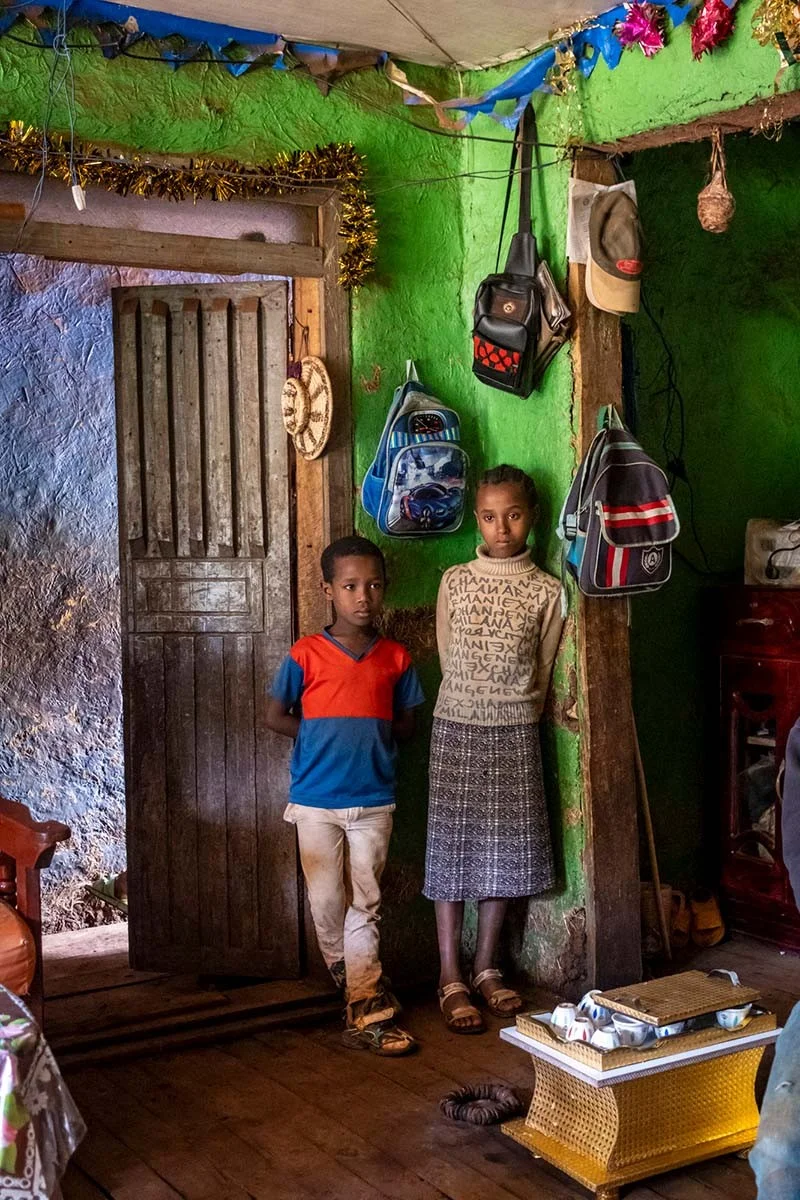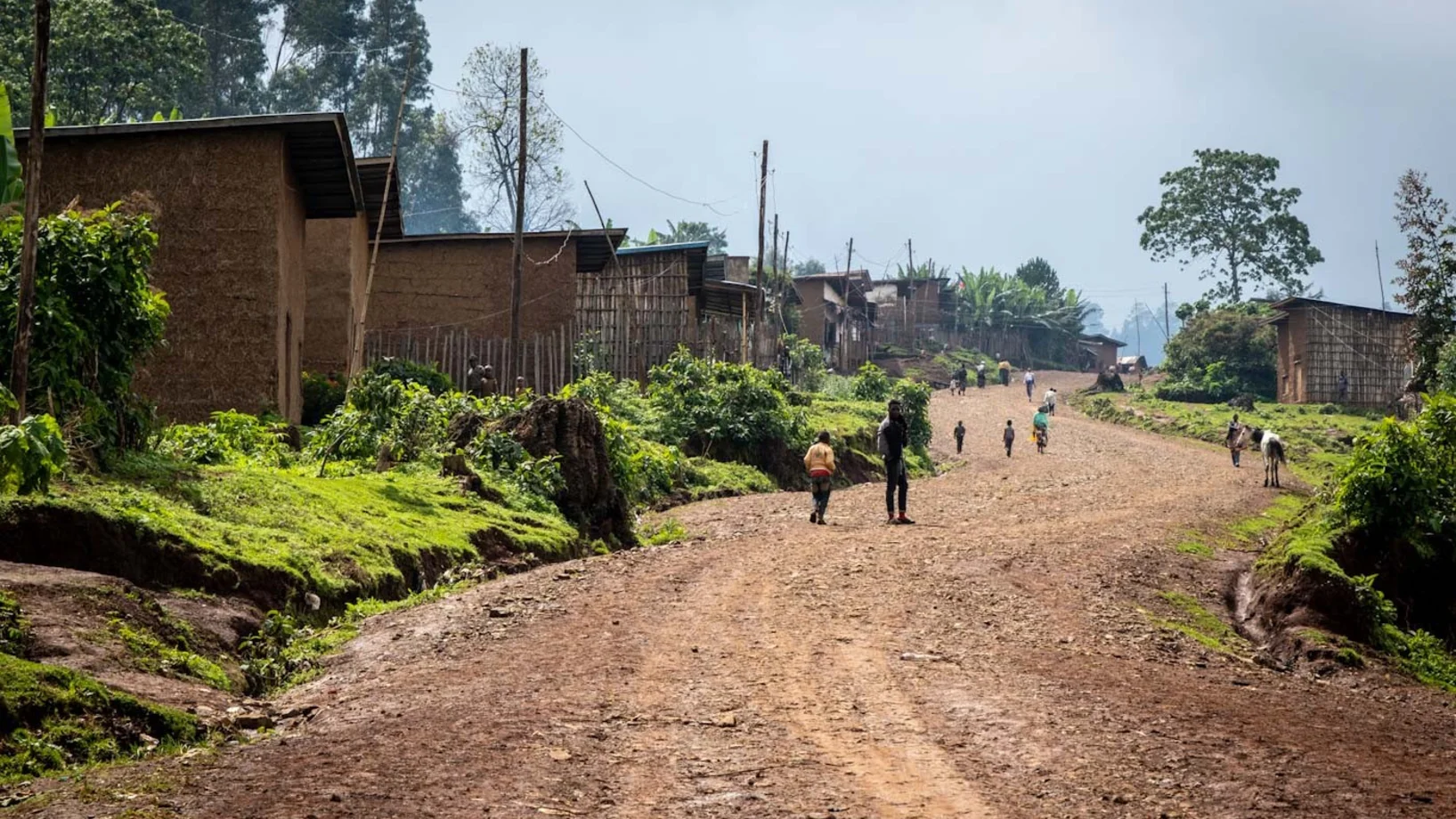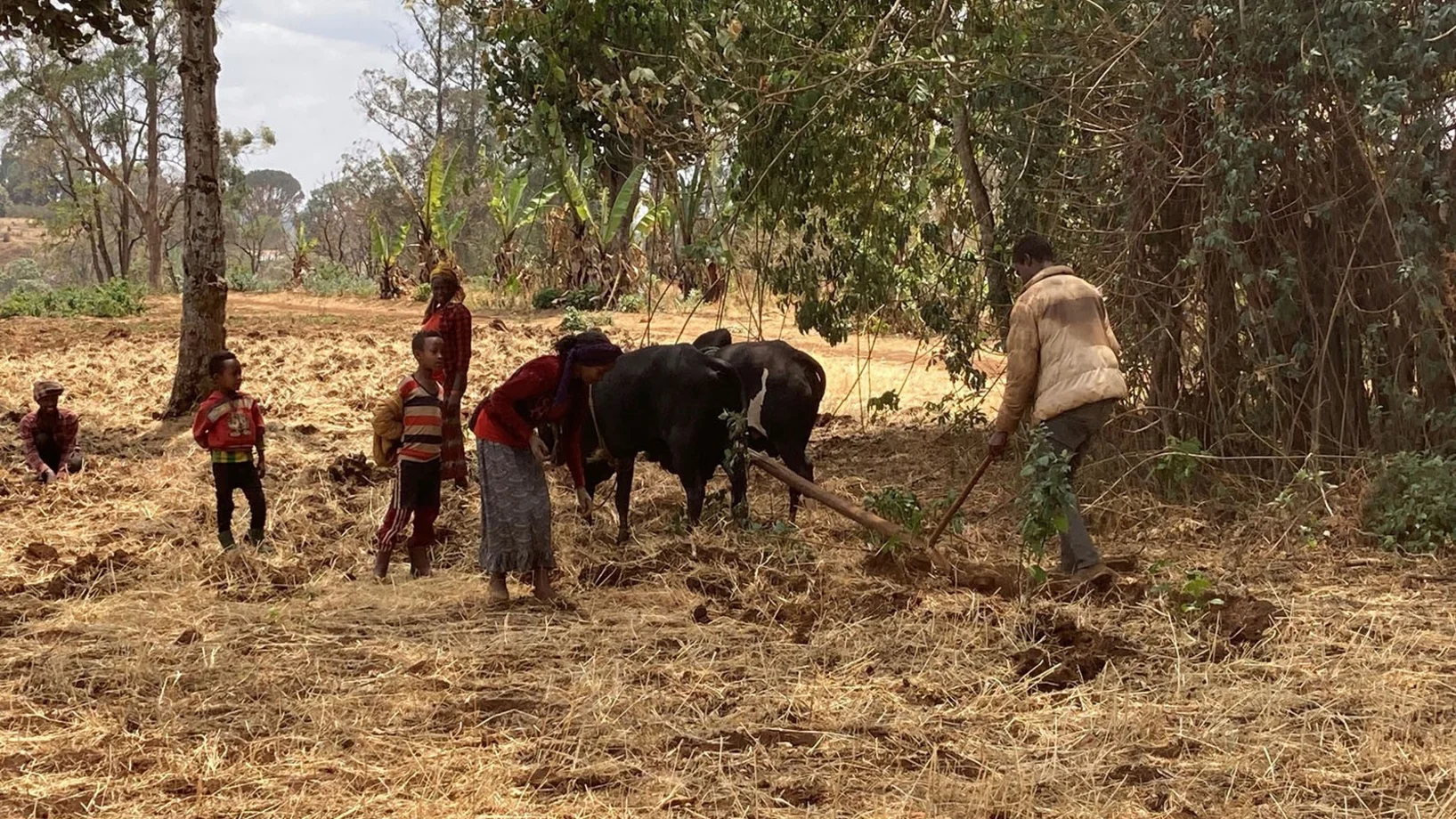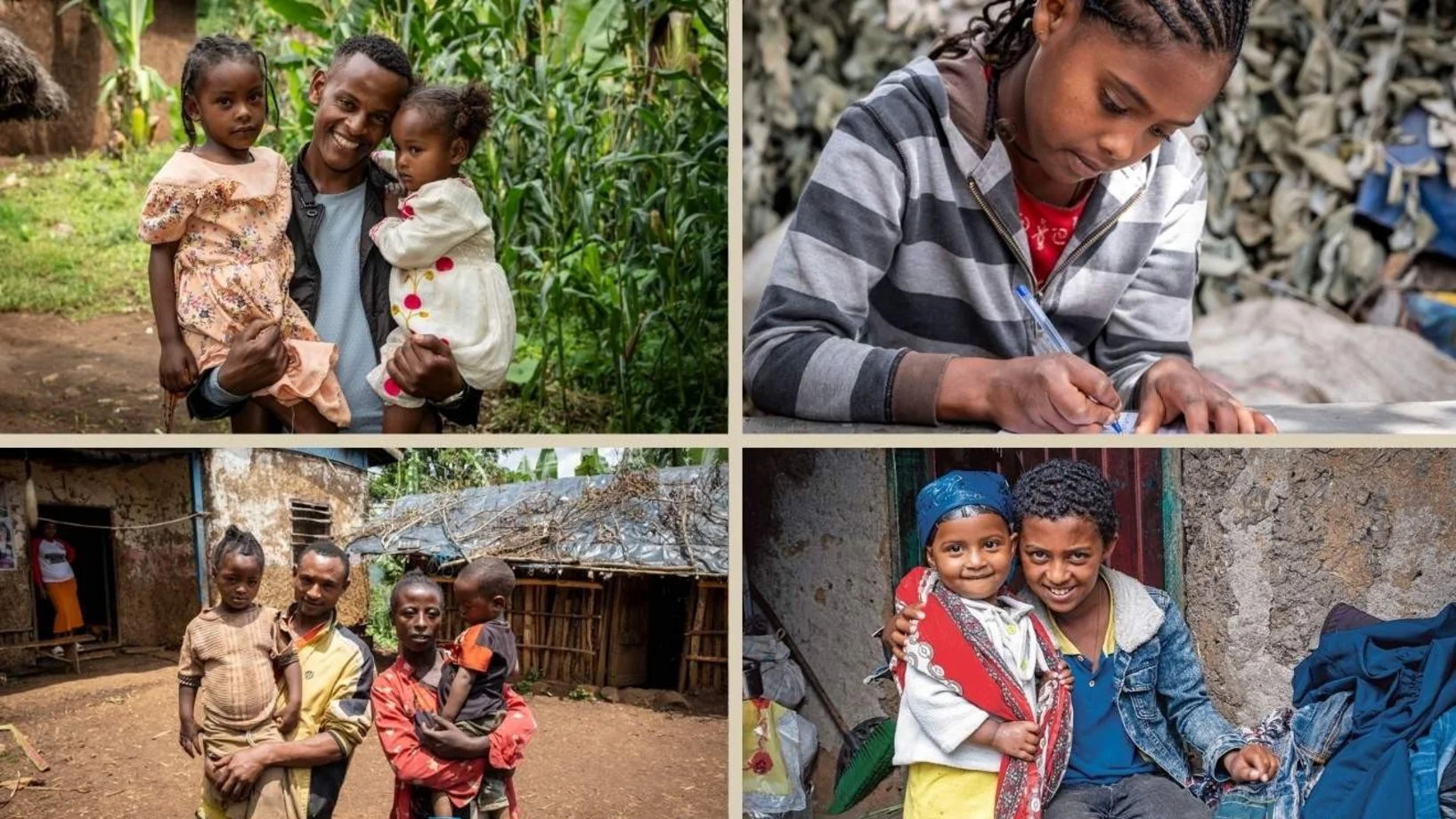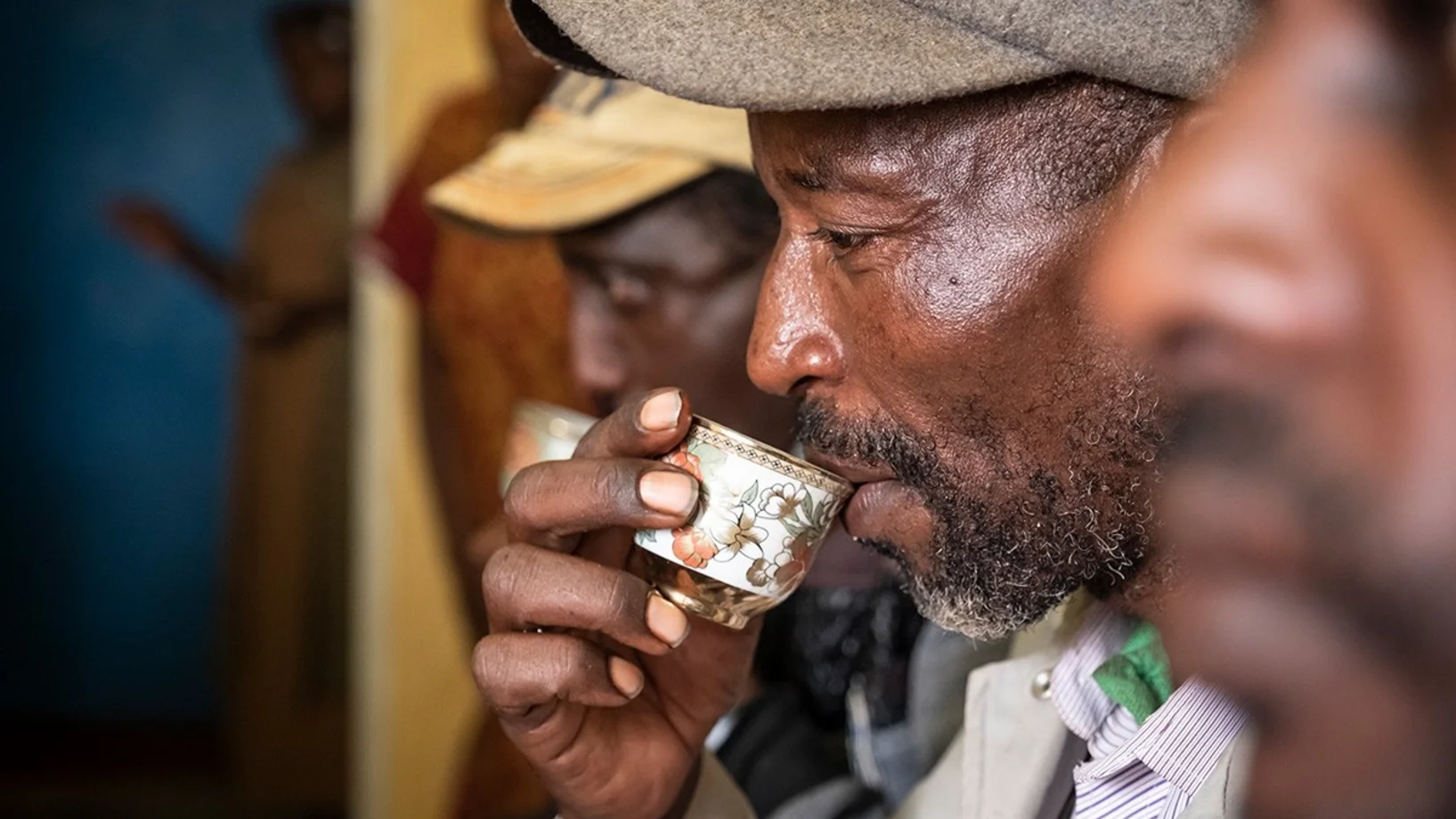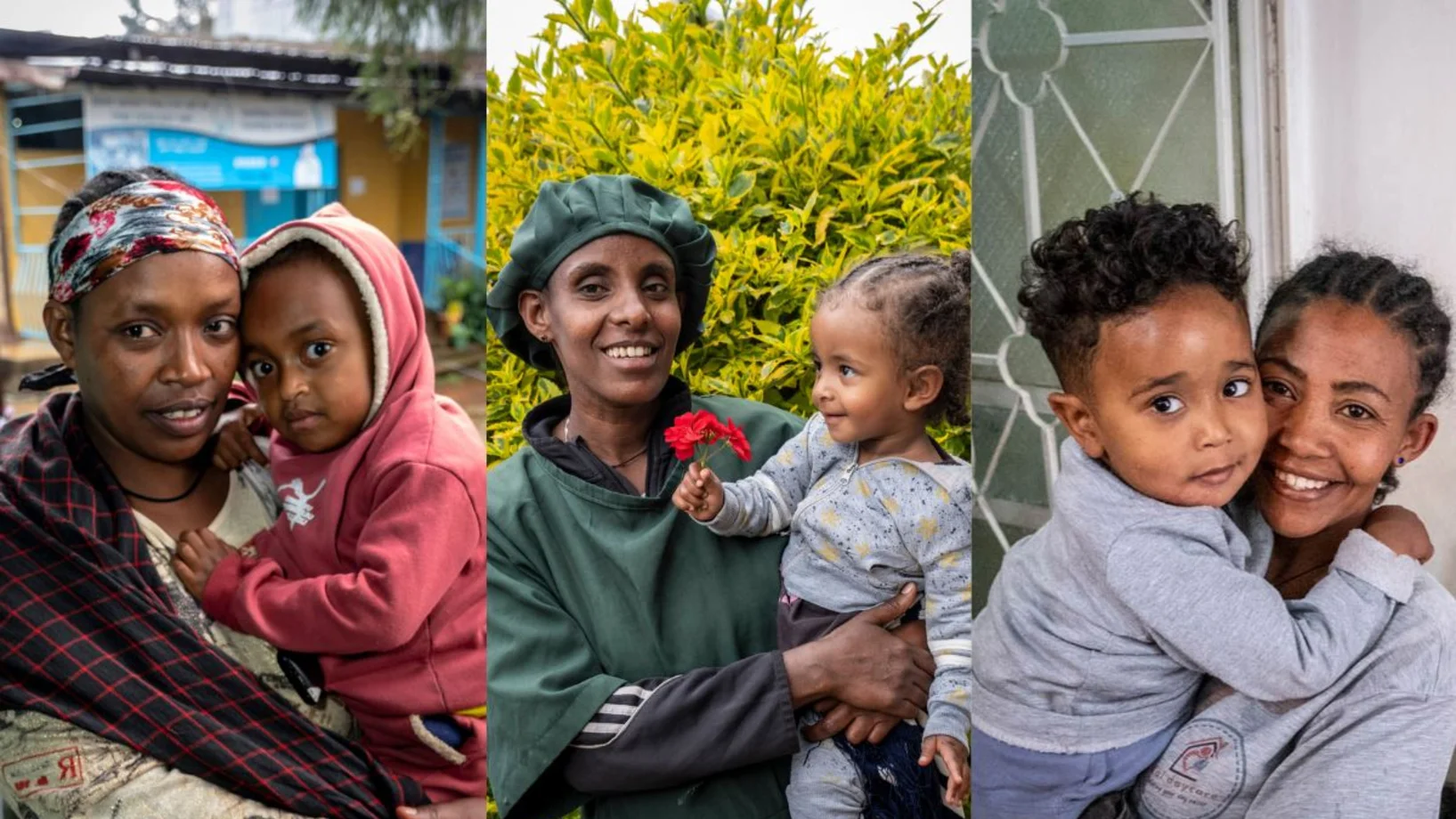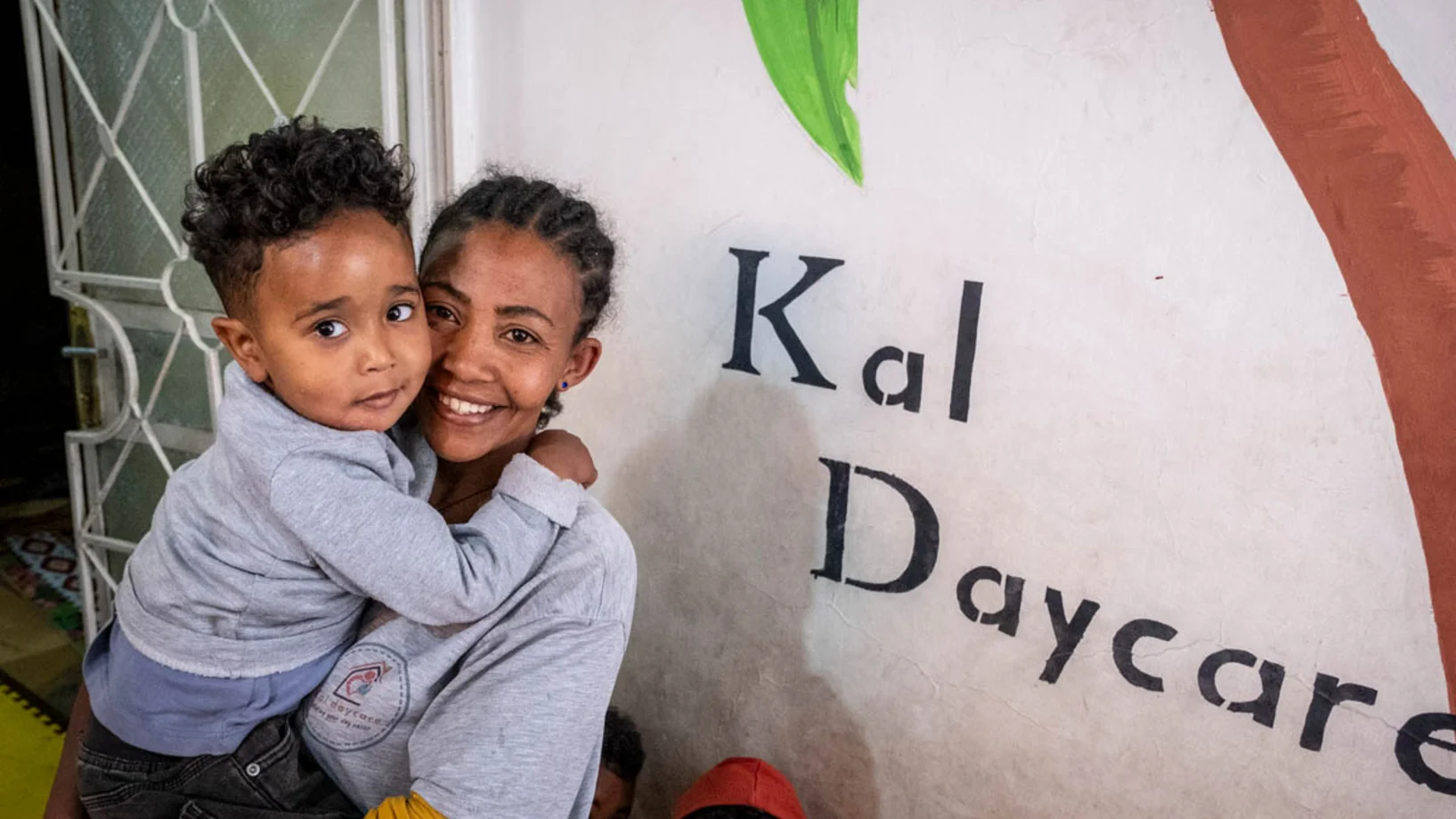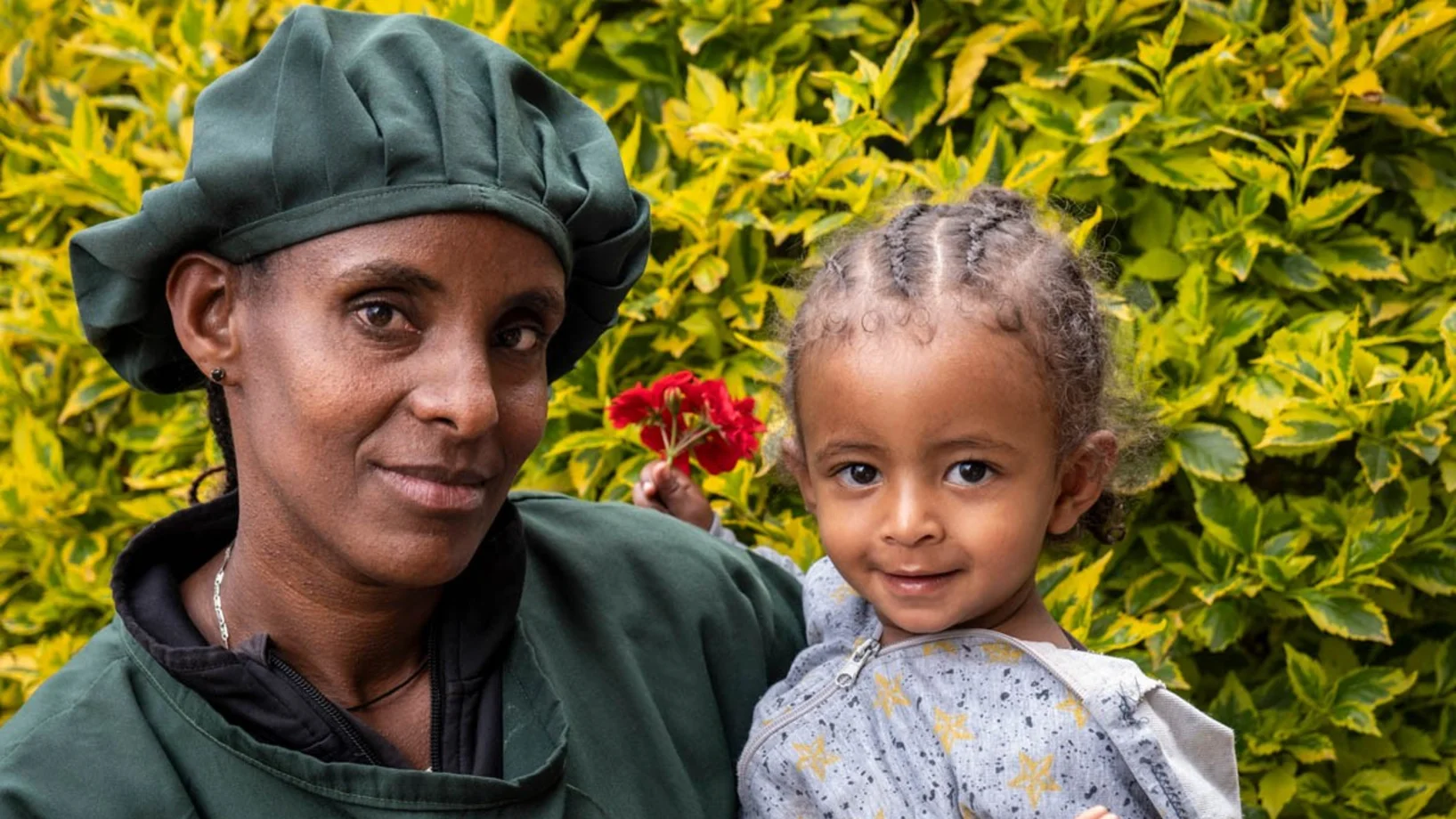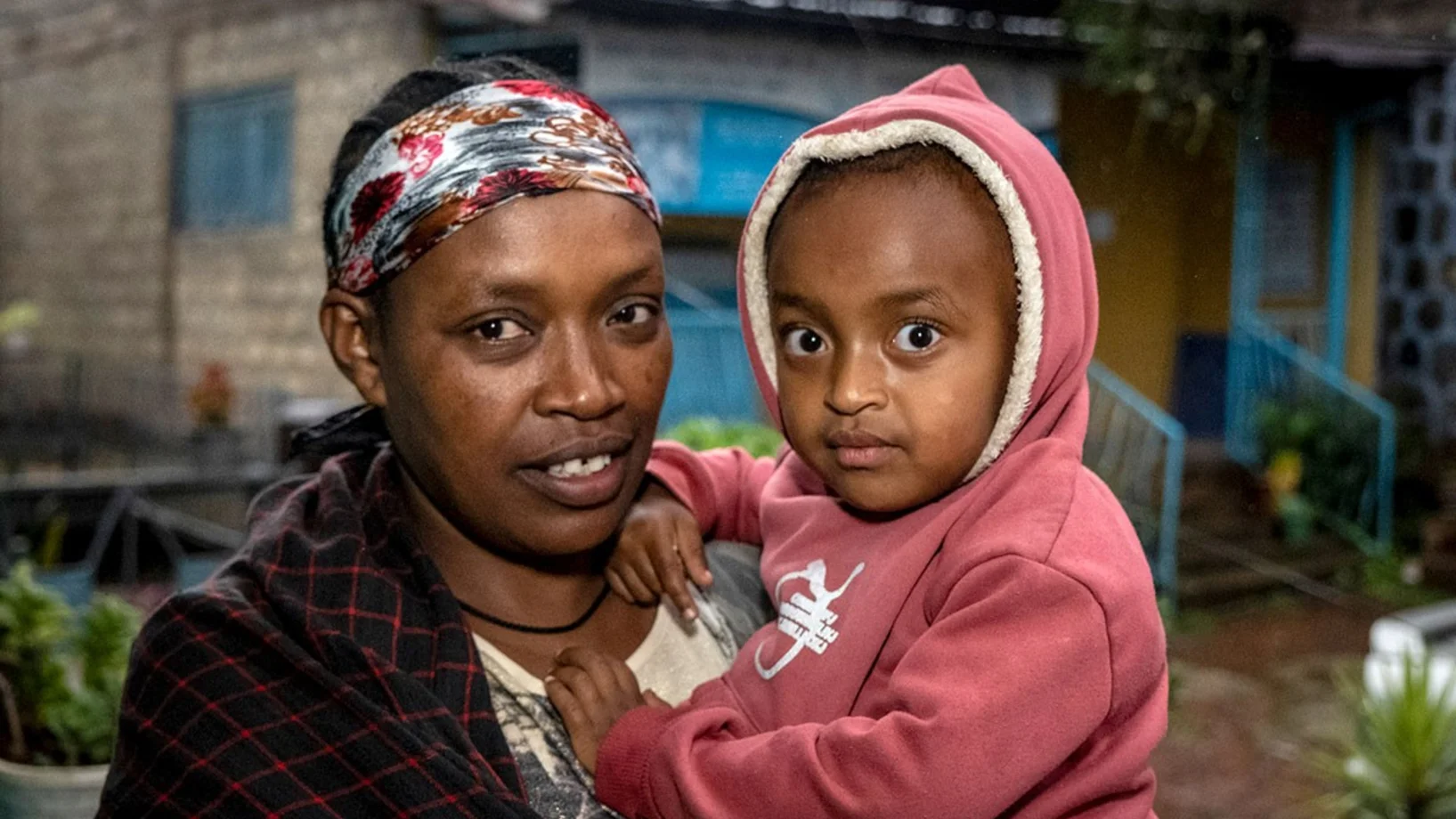With new coffee seedlings, hard work and a strong cooperative, Demeke Bedo has found his way out of poverty. Today, he can feed his family and invest in their future.
Anyone who steps into a house in rural Ethiopia immediately sees how little there is to live on. The walls are often full of holes, the roof is often only covered with grass. There is hardly any furniture. However, there are degrees of poverty: Some families at least have a roughly made bed frame. Others sleep on the floor, on a mattress made of foam or even straw. But there are also people who have nothing but a jute mat or a few banana leaves to sleep on.
A cow, three sheep and a donkey graze in front of the house's veranda. All of these are the achievements of hard-working farmer Demeke - and initial help from Menschen für Menschen: "Everything comes from the project," says Demeke.
His success is exemplary of the development in the Abaya and Gelana project area, where the Swiss foundation has been initiating comprehensive development for nine years. An external evaluation confirmed this at the end of 2024: Income and living standards have risen significantly and the food situation has improved. The results are based on a whole range of measures - from small loans and training courses to new seedlings and the strengthening of cooperatives.
Demeke has experienced both: individual support and the strengthening of the local coffee cooperative Homa in the community of Shara. Right at the start of our project in 2016, the farmer received training in coffee agronomy and 500 young coffee plants of a high-yielding variety. At that time, he explains, there were only old, diseased coffee bushes and Enset plants on his land, whose yield was barely sufficient for his own needs: "Productivity was very low, luckily I was able to replace them with the high-yielding young plants."
His harvest grew year after year: when the coffee seedlings bore fruit for the first time, he picked 600 kilograms of red coffee cherries from the field, and in the years that followed, more and more than 1000 kilograms.
Demeke sold parts of his harvest privately, but also to the local agricultural cooperative: in parallel to helping the individual farmers, Menschen für Menschen strengthened the "Homa Multipurpose Cooperative" by building a simple warehouse made of hollow blocks and a corrugated iron roof for around 25,000 Swiss francs. An investment that quickly paid off, both for individual families and the entire community. "Before we built it, we only had a small warehouse with walls made of sheet metal," says Beri Morketa, the cooperative's managing director. "It was far too warm. The coffee dried out. It should have twelve percent moisture when we sell it. But in the old warehouse, the moisture content dropped to ten or eight percent." As a result, the cooperative was only able to sell its members' coffee at a low quality level and a low price.
Things are different today. "We have enough space to buy a lot of coffee and store it sorted by quality," says Beri Morketa. After the warehouse was built, annual revenues of the equivalent of around 200,000 francs became the norm for the cooperative - money that also flowed into small loans for seeds and fertilizer for the members and contributed to further development. In the meantime, they no longer only supply the umbrella organization of cooperatives, but also do business with customers in France, China and the USA: "We can only maintain the quality for export because of the warehouse." The cooperative was founded thirty years ago by 200 farmers and now has over 2000 members.
